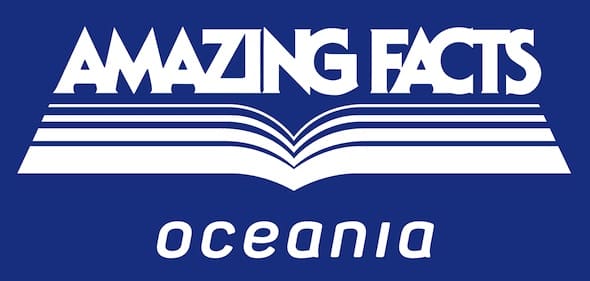If you’re claustrophobic, going to the bottom of the North Atlantic in a submersible the size of a minivan is not recommended.
“Imagine a metal tube a few meters long,” said Arthur Loibl, one of OceanGate’s first customers to board the Titan, a submersible that carries five passengers to a depth of about 12,500 feet to see the Titanic’s wreckage. “You can’t stand. You can’t kneel. Everyone is sitting close to or on top of each other,” said the retired businessman from Germany, who likened his dive in the Titan to a suicide mission.
Since OceanGate began its Titanic tours in 2021, Loibl is one of 46 people who have viewed the 1912 ship wreckage through the Titan’s small porthole—and have lived to talk about it. But on June 22, 2023, a French Titanic expert, a British adventurer, a Pakistani businessman and his son, and the OceanGate CEO were pronounced dead after debris was found on the ocean bed.
Submitting to the deep-sea pressure, the submersible had imploded.
A Prolonged and Nightmarish Charade
The Titan launched on the early Sunday morning of June 18, and by the afternoon, it was reported overdue about 435 miles south of St. John’s, Newfoundland. What transpired over the next few days, according to James Cameron, the director of the movie Titanic, was a “prolonged and nightmarish charade.”
Cameron himself has made more than 30 dives to the Titanic wreck site, so he knew exactly what had happened after he heard the submersible had lost contact with the surface crew. “For the sub’s electronics to fail and its communication system to fail, and its tracking transponder to fail simultaneously—sub’s gone,” he told BBC News. As far as he was concerned, the media coverage about the Titan’s 96-hour oxygen supply “was just a cruel, slow turn of the screw” that gave false hope to the crew’s family members.
Nevertheless, a sliver of hope remained when, two days after the Titan went missing, sonar detected banging sounds underneath the water every 30 minutes. But any hope that the crew was still alive was gone by early Thursday when the U.S. Coast Guard announced that debris, “consistent with the catastrophic loss of the pressure chamber,” had been found about 1,600 feet from the Titanic.
A Callous and Cruel Reaction
In line with Cameron’s “nightmarish charade” analysis, Los Angeles Times reporter Jessica Gelt called the news briefings “exploitative.” It became a “bizarre media feeding frenzy that we have become accustomed to in the 21st century—a minute-by-minute accounting of the claustrophobia, freezing limbs, confusion and mood swings” that the passengers might have experienced.
Such terror, unfolding for four days in real time, was only compounded by the public’s reaction on social media. “Gleeful best describes the tenor of many posts,” reported Gelt, “which include[d] making fun of the video game controller used to pilot the Titan, laughing at the billionaires inside … [and] jokes about the effects of lack of oxygen on the human psyche.”
Then there were those who turned the tragedy into a philosophical lesson on income inequality. For example, since the Titanic itself is associated with “the basest impulses of the uber-wealthy who fled the sinking steamliner in life rafts while leaving sequestered third-class passengers to die,” how fitting that their deaths should be avenged upon those who paid $250,000 per ticket to view the wreckage.
But those who laughed at, or even pontificated about, the fate of the Titan’s five passengers might have shown more decorum had they thought of Suleman Dawood. The 19-year-old was “terrified” to take the dive, his aunt later told NBC News, but didn’t want to disappoint his “Titanic-obsessed” father, who had already bought two tickets.
The Price of a Human Life
What’s behind all the cruel comments, if not the same envy that originated in Lucifer’s heart? This angel came to hate “the Most High” because he couldn’t be “like” Him (Isaiah 14:12). Envy will cause people to say the cruelest things—and, as history shows, do those things should the opportunity arise. It was “because of envy” that the Jews had Jesus crucified (Mark 15:10).
However, not all the fire on social media surrounding the Titan tragedy was kindled by envy of the uber-wealthy. One professor tweeted that she felt sorry for the 19-year-old, but “the unequal treatment of this and the migrant boat catastrophe is unspeakable.”
On June 14, just four days before the Titan went missing, a fishing trawler overloaded with more than 700 migrants from Libya “capsized and sank in the Ionian Sea.” Only 104 of them were rescued. About 80 bodies were recovered, while the rest are still missing, presumed dead.
And yes, children were among them. One survivor reported there were a hundred children in the boat’s hold—where smugglers are known to lock up a portion of their passengers to maintain control. Yet this maritime tragedy, “the worst … in Greece in recent years,” did not receive “anything close to the round-the-clock obsessive media coverage as the Titan.”
The Bible says that every human being, rich or poor, has the same value. Each person was “bought with [the same] price” (1 Corinthians 6:20)—an amount so high that only God could afford it. He bought each of us “with the precious blood of Christ, as of a lamb without blemish and without spot” (1 Peter 1:19).
As one commentator posted on Twitter, “It is possible to hold space for both the drowned migrants and the missing billionaires. In fact, to maintain a shred of our human decency, it’s necessary to honor all levels of human suffering and death.”


